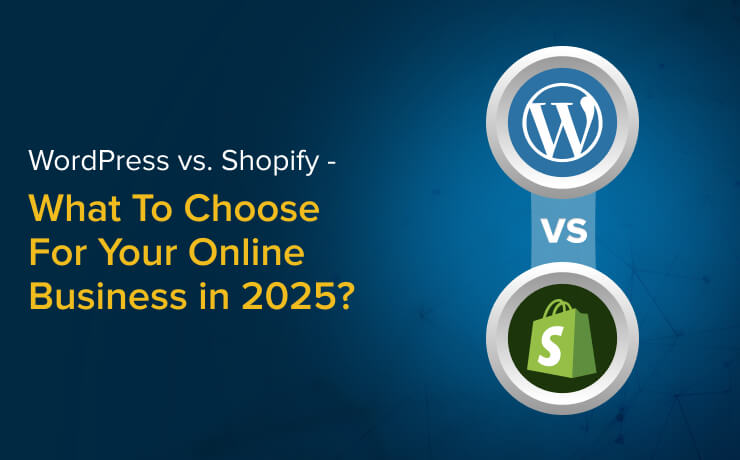WordPress vs. Shopify – What To Choose For Your Online Business in 2025?

Anastasiia Leffingwell
Project Manager

Choosing the right platform for your e-commerce business is crucial, and two of the top options in 2025 are WordPress and Shopify. Both are popular, but they cater to different types of e-commerce needs. Here’s a simple guide to help you understand which platform might suit your business best.
WordPress: Flexibility and Customization
WordPress is known for its flexibility and endless customization options, which can be enhanced with the WooCommerce plugin to create a powerful e-commerce store. WordPress is open-source, meaning you can download it for free and build almost anything you want. It provides thousands of themes and plugins, so you can customize your e-commerce store to look and function exactly how you envision it.
With WordPress and WooCommerce, you have control over every detail. You can choose your own hosting provider, which can sometimes reduce costs, and configure your store’s SEO and performance settings to a greater extent. WordPress is ideal for those who want a custom-built site and are comfortable with the idea of managing the technical aspects of their online store.
However, setting up and running a WordPress-based e-commerce site can be more complex than Shopify. You may need to handle security, backups, and updates manually or with the help of a web developer. So, WordPress is best suited for businesses that require a highly customized online store or content-rich sites that also want to sell products.
Pros of WordPress (with WooCommerce):
- Complete control over design and functionality
- Thousands of plugins and themes for customization
- Greater flexibility in SEO and content creation
Cons of WordPress:
- Higher learning curve for beginners
- Requires ongoing management of security and updates
- Limited built-in e-commerce features without plugins
Shopify: Built for E-commerce Success
Shopify, in contrast, is specifically designed for e-commerce, making it an all-in-one solution for businesses focused solely on selling products. Shopify takes care of hosting, security, and backups, making it easy to set up and maintain an online store without much technical knowledge.
Shopify’s user-friendly interface, built-in inventory management, payment options, and integrated analytics tools make it ideal for entrepreneurs who want a streamlined, no-fuss setup. Shopify also has a range of themes and customization options, although it’s not as flexible as WordPress when it comes to design and functionality.
However, Shopify has monthly fees, and additional transaction fees can apply if you don’t use Shopify Payments. It may also require paid apps to add more advanced features, which can increase costs over time. Still, Shopify’s reliability, support, and e-commerce-focused tools make it a popular choice for dedicated online retailers.
Pros of Shopify:
- Easy setup and e-commerce-specific features
- Secure and reliable with built-in payment processing
- Great support for growing e-commerce stores
Cons of Shopify:
- Less flexible than WordPress for design and customization
- Higher costs with monthly fees and transaction fees
- Limited content management options outside of e-commerce
Which Should You Choose?
If your business is primarily focused on selling products and you want a straightforward, reliable platform, Shopify is a top choice for e-commerce. It’s easy to use and provides all the tools you need to manage an online store, from inventory to payment processing.
If you’re looking for greater flexibility and plan to build a content-rich site with blog posts, resources, or a unique design, WordPress with WooCommerce might be a better option. This combination offers more control and customization options, making it ideal for complex, multi-functional e-commerce sites.
To summarize, if you need a dedicated e-commerce solution, Shopify is often the better choice. For a fully customized website that also includes e-commerce, WordPress offers powerful capabilities. Either platform can set your e-commerce business up for success in 2025.
 Free
Consultation
Free
Consultation Free
Google Ads Audit
Free
Google Ads Audit







